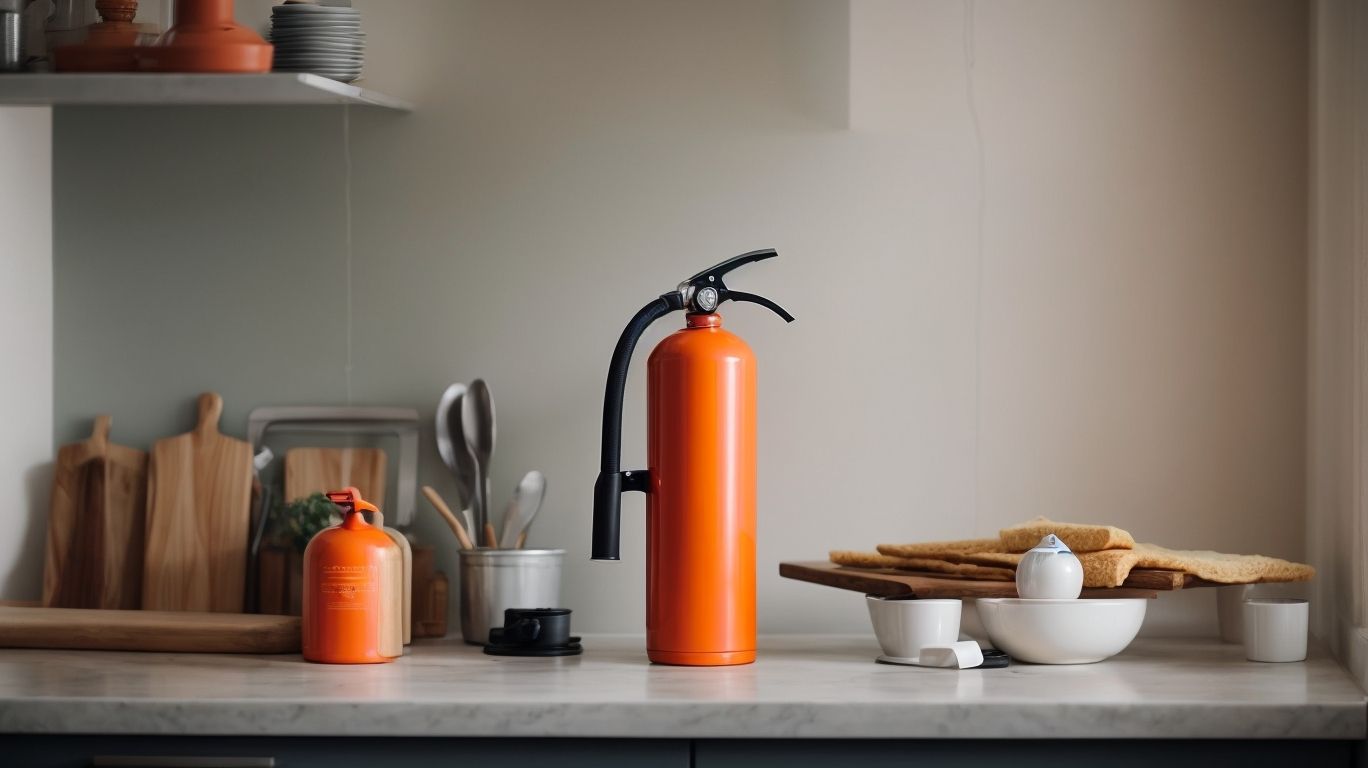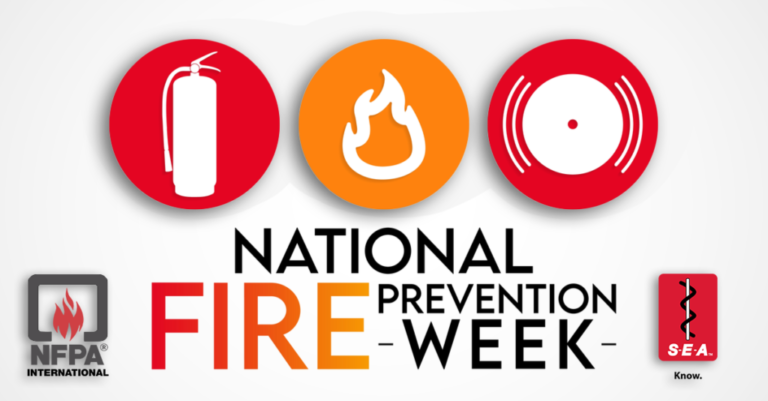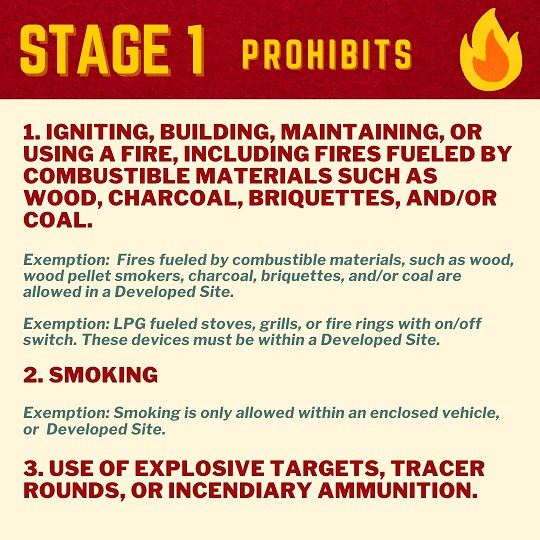How To Prevent A House Fire – Did you know that house fires are a leading cause of property damage and loss of life? You never think it will happen to you until it does. But don’t worry, this article is here to help. In just a few simple steps, you can learn how to prevent house fires and keep yourself and your loved ones safe.
Why Are House Fires a Concern?
House fires are a major concern due to their destructive nature. They not only pose risks to lives, property, and the environment, but they can also spread rapidly and engulf an entire home within minutes. This can result in injuries, fatalities, and financial loss. Moreover, the toxic smoke released during a fire can have detrimental effects on both human health and the ecosystem.
Therefore, it is crucial to take preventive measures to avoid house fires in order to safeguard lives and preserve homes and surroundings.
What Are the Common Causes of House Fires?
While nobody wants to imagine their home going up in flames, the unfortunate reality is that house fires are a common occurrence. To prevent such a devastating event, it’s important to understand the common causes of house fires. In this section, we’ll discuss the top five culprits: cooking accidents, electrical malfunctions, heating equipment, smoking, and the use of candles and fireplaces.
By being aware of these potential hazards, we can take necessary precautions to keep our homes and loved ones safe.
Cooking Accidents
- Stay focused while cooking to prevent accidents in the kitchen.
- Keep flammable items away from the stove to reduce the risk of cooking accidents.
- Use a timer to remind you of cooking food and avoid burning it.
- Turn pot handles inward to prevent accidental spills and potential burns.
- In case of a grease fire, cover the pan with a lid and turn off the heat to prevent it from spreading.
Electrical Malfunctions
Electrical malfunctions, such as faulty wiring or overloaded circuits, can be a major cause of house fires. To prevent this, it is important to have regular electrical inspections, avoid using frayed or damaged cords, and refrain from using multiple high-wattage appliances at the same time. It is also important to address any flickering lights or intermittent power surges promptly, as these could be signs of underlying electrical problems.
Heating Equipment
- Regular Maintenance: Schedule annual inspections for heating equipment, including furnaces, chimneys, and other appliances, to ensure proper functioning.
- Clear Surroundings: Keep a clear area around heating equipment, such as heaters, furnaces, and fireplaces, to prevent accidental fires.
- Qualified Installation: Ensure that heating equipment is properly installed by certified professionals to minimize risks.
Smoking
- Designate smoking areas outside the house to avoid indoor fire risks.
- Always use deep, sturdy ashtrays to prevent accidental fires.
- Never smoke in bed or when drowsy to avoid ignition of bedding or furniture.
- Keep lighters and matches away from children to prevent unauthorized use.
Candles and Fireplaces
- Keep candles and fireplaces away from flammable materials like curtains, furniture, and bedding.
- Never leave candles unattended and extinguish them before leaving the room or going to bed.
- Use sturdy candle holders and place them on stable surfaces, away from drafts and away from children and pets.
- Have a fireplace screen to prevent sparks and embers from escaping the fireplace.
- Regularly clean the fireplace and chimney to remove debris and prevent potential fire hazards.
How to Prevent House Fires?
House fires can be devastating, causing damage to property and putting lives at risk. However, many house fires can be prevented by taking simple precautions. In this section, we will discuss seven essential steps to prevent house fires. By following these tips, you can protect yourself and your loved ones from the dangers of fire. From installing smoke detectors to practicing safe cooking habits, we’ll cover everything you need to know to keep your home safe from fires.
Install Smoke Detectors
- Choose the right type: Opt for photoelectric or dual-sensor smoke alarms for comprehensive coverage.
- Placement: Properly install smoke detectors on each level, including inside and outside of sleeping areas.
- Maintenance: Regularly test, clean, and replace batteries to ensure functionality.
- Interconnectivity: For optimal safety, link all alarms so that when one sounds, they all do.
Have a Fire Escape Plan
- Discuss and practice a fire escape plan with all household members, designating primary and alternate escape routes.
- Ensure everyone knows how to unlock windows and doors along the escape route.
- Choose a meeting place outside and a safe distance from the home.
- Practice the escape plan regularly, especially with children and elderly family members.
- Teach household members to feel doors for heat before opening and to stay low to avoid smoke inhalation.
Keep Flammable Items Away from Heat Sources
- Store flammable items in a cool, dry place away from any heat sources.
- Avoid placing flammable liquids near stoves, heaters, or other appliances that emit heat.
- Keep flammable materials, such as paper, fabric, or wood, away from fireplaces, radiators, and space heaters.
Be Careful with Candles and Fireplaces
- When using candles and fireplaces, always be cautious and follow these safety tips:
- Keep flammable items away from candles and fireplaces.
- Use a sturdy, heat-resistant surface for candles.
- Never leave candles unattended and make sure to extinguish them before leaving the room or going to bed.
- Ensure that children and pets are kept away from fireplaces and lit candles.
- Regularly inspect and maintain fireplaces, chimneys, and flues to ensure their safety.
Avoid Overloading Electrical Outlets
- Ensure that each outlet is not overloaded by utilizing power strips with built-in circuit breakers.
- Do not rely on extension cords as a long-term solution for additional outlets.
- Protect electrical devices and prevent overloading by using multi-outlet surge protectors.
Remember, overloading electrical outlets can lead to hazardous fires. It is crucial to follow safe usage practices and adhere to electrical capacity guidelines.
Practice Safe Cooking Habits
- Keep flammable items away from the stove.
- Never leave the kitchen unattended while cooking.
- Turn pot handles inward to prevent accidents.
- Keep a fire extinguisher in the kitchen.
- Wear appropriate clothing to avoid catching fire.
Practicing safe cooking habits is essential to prevent kitchen fires and ensure household safety.
Don’t Leave Heat Sources Unattended
- Always remain in the kitchen while cooking on the stovetop
- Keep flammable items, such as kitchen towels and oven mitts, away from heated surfaces
- Turn off portable heaters when leaving a room or going to bed
- Extinguish candles before leaving a room or going to sleep
What to Do in Case of a House Fire?
In the event of a house fire, knowing what to do can save lives. There are three key actions to take: get out and stay out, call for help, and don’t go back inside. Let’s dive into each of these sub-sections to understand why they are crucial steps in preventing injury or even death during a house fire. By following these guidelines, you can protect yourself and your loved ones in a potentially life-threatening situation.
Get Out and Stay Out
When facing a house fire, it is imperative to act quickly and decisively to ensure personal safety. Follow these steps to evacuate and remain safe:
- Leave the building immediately, making sure to close doors behind you to contain the fire.
- Move to a safe location outside of the house, such as a neighbor’s house or a designated meeting point.
- Do not attempt to re-enter the house for any reason until the fire department has declared it safe to do so.
Pro-tip: Practice fire drills with your family to ensure that everyone is familiar with the evacuation plan.
Call for Help
- Call 911 immediately after evacuating the premises.
- If needed, call for help by providing the dispatcher with your location and details of the situation.
- Follow any instructions given by the emergency operator.
Don’t Go Back Inside
- If you have safely exited the premises, do not attempt to re-enter and wait for professional assistance.
- Re-entering a burning building can result in severe injury or death, as conditions can quickly worsen.
- It is important to prioritize your safety and well-being, and allow trained firefighters to handle the situation.
Frequently Asked Questions
How can I prevent house fires?
There are several steps you can take to prevent house fires:
- Install smoke detectors on every level of your home and test them regularly.
- Never leave cooking or heating appliances unattended.
- Keep flammable objects away from heat sources.
- Properly maintain your electrical wiring and appliances.
- Have a fire escape plan and practice it regularly with your family.
- Don’t smoke inside your home.
Why is it important to have smoke detectors in your home?
Smoke detectors are crucial in preventing house fires because they can alert you and your family to the presence of smoke and allow you to escape before the fire spreads. They can also automatically call emergency services, giving you a faster response time.
What should I do if I find a small fire in my home?
If you find a small fire in your home, your first priority should be to get yourself and your family out safely. If you can safely do so, use a fire extinguisher to put out the fire. If the fire is too big or you are unsure of how to use a fire extinguisher, call emergency services immediately.
What should I do if there is a power outage or electrical issue in my home?
If you experience a power outage or notice any electrical issues in your home, it is important to take immediate action to prevent a potential fire. Turn off all appliances and unplug them, and avoid using candles as a source of light. If you notice any unusual smells or signs of a fire, evacuate your home and call emergency services.
Can I prevent kitchen fires when cooking?
Yes, there are several steps you can take to prevent kitchen fires while cooking:
- Never leave the stove unattended.
- Keep flammable objects, such as dish towels, away from the stove.
- Clean up any spills or splatters immediately.
- Use a timer to remind you when cooking.
- Keep a fire extinguisher in the kitchen.
How often should I check my smoke detectors?
You should check your smoke detectors at least once a month to ensure they are working properly. You should also replace the batteries every year and completely replace the smoke detector every 10 years.






